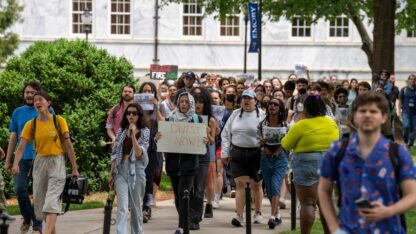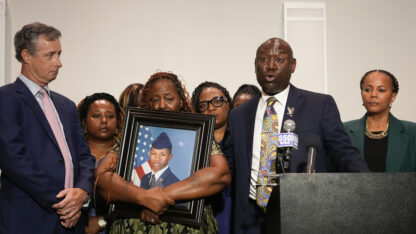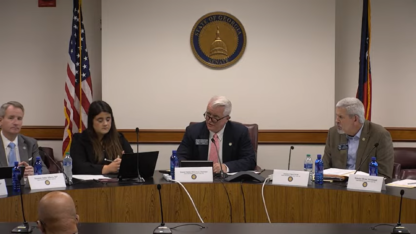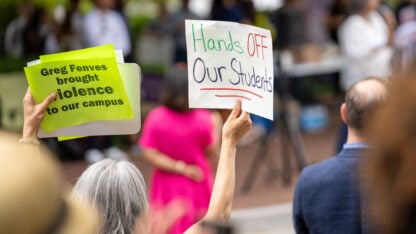Gary Shteyngart’s new novel looks at a pandemic lockdown with friends

Gary Shteyngart’s new novel is “Our Country Friends.”
Brigitte Lacombe
In what some critics have hailed as “the first great literary novel of the pandemic,” Gary Shteyngart glimpses into a subtle world outside the scope of the news cycle’s vocabulary – the strange and delicate social bubbles in which so many of us weathered the significant disruption of the last two years’ pandemic. “Our Country Friends” follows a fictitious Russian-American writer, gathering his family and closest friends at his upstate New York bungalow during the lockdown. There, the group of wildly different personalities struggle to sustain their complex relationships. Shteyngart joined “City Lights” host Lois Reitzes to discuss how his new novel’s microcosm of mixed identities yields a truly American experience.

Interview highlights:
The real-life dystopia from which Shteyngart’s new novel was born:
“I had been writing a dystopian novel before, a kind of funny academic dystopian novel set in a future where New York University, NYU, had taken over much of Manhattan, and many funny hijinks ensued after that,” Shteyngart said. “But given that the pandemic and the political situation in our country was becoming far more dystopian than anything even my very dystopian-disposed mind could imagine, I very quickly switched gears and began to make up the eight characters that populate this book – characters who are, for the most part, immigrants from all over the world.”
The strange stew of personalities in ‘Our Country Friends’:
“There’s Alexander, or Sasha, Senderovsky, and he’s kind of an avatar for me in a way because he’s a Russian novelist who spends most of his time in the countryside, as I do, in upstate New York. His wife is Masha, and she’s also Russian-born, unlike my wife, and she’s a psychiatrist who deals mainly with elderly Russians who believe in these crazy conspiracy theories that have been going around…. The daughter is adopted from China. She’s about eight years old. She’s very precocious and is undergoing a bit of an identity crisis. And to that little family, he’s invited five guests,” said Shteyngart. “All of them are put together into this pressure cooker. The pandemic is happening, but it’s not exactly happening in the bungalow colony, at least at first – it’s happening elsewhere.”
“This very much mirrors a kind of upbringing I had, where some of the first good friends I made were cross-cultural friends. I went to a math and science high school in New York City where many of the kids were Korean, Indian, Chinese, and many were Russian, and we were all sort of lumped together,” said Shteyngart. “We all kind of became closer than friends; there was almost a kind of parenting going on…. In this book, I take those basic kinds of relationships, but to add a little bit of tension, I create these dynamics of betrayal between all of them; betrayal in love, betrayal in careers, betrayal in social status, all of these different things that add a lot of spice, hopefully, to the story…. Fights between these friends hurt even more than fights between normal friends because these friendships are also stand-ins, in some cases, for all these other things like parenting and romance.”
Allusions to Chekov and other literary luminaries:
“The book is actually structured like a four-act play, with everything that that entails, and at the end of the book… a production of “Uncle Vanya” is staged and plays like the cherry orchard in “Uncle Vanya” were heavily in my mind because so much of Chekov’s work is usually set in a country house,” said Shteyngart. “There’s usually some protagonists who are telling stories about other protagonists, and at the same time they’re looking at their lives and thinking, ‘Well, this didn’t go right, and that didn’t go right, but this did go right; this is okay.’ And they’re also re-evaluating their friendships…. That’s really the meat of this book. It’s a pandemic novel, of course, but also, friendships are the real lynchpin of this book.”
“‘Love takes off masks that we fear we cannot live without, and fear we cannot live within,’” quoted Shteyngart, “And that’s of course from James Baldwin… but obviously I was thinking of the masks that we were wearing during the pandemic, which led me to a bunch of different thoughts. Because I’ve had friends who have been single forever, who have fallen in love during the pandemic… When they met their future beloved, they were wearing masks. So the masking was a very interesting part of the pandemic because we only got to see half of each others’ faces when we got to see each others’ faces at all… Immigrants, of course, especially as they’re adjusting to this country, as I had when I was a kid, are always wearing a mask because you always have to adjust yourself to what you perceive others need from you.”





